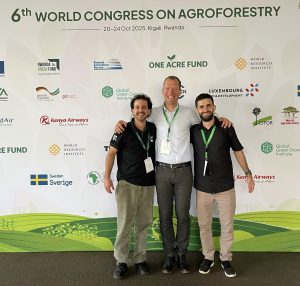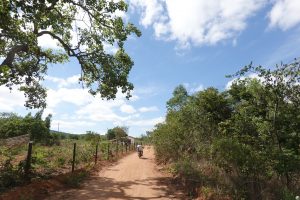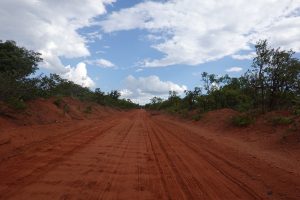EcoSiPas










© Viviane Nascimento Carvalho
About the project
The Brazilian Cerrado is the world’s richest and most endangered woodland and tree savannah, containing numerous species, many of which endemic. But besides being a globally significant biodiversity hotspot, the Cerrado is also one of Brazil’s most important agricultural areas. As a consequence of agricultural expansion, already over half of the original Cerrado has been deforested. Deforestation continues to be a major issue, with deforestation rates higher than in the Amazon biome.
These developments are not without consequences: biodiversity hotspots such as the Cerrado are vital for human survival due to the crucial ecosystem services they provide. These include, for example, climate regulation, safeguarding the region’s water resources, or the preservation of endemic species and the conservation of natural resources more generally. There is a need for a more sustainable management of the Brazilian Cerrado, allowing for sustainable agricultural activities while safeguarding its abilities to provide aforementioned ecosystem services.
Project Goal
The environmental impact of agricultural systems can vary very strongly. For the Cerrado biome locally adapted silvopastoral systems are considered one of the most promising approaches to manage Cerrado forests more sustainably, restore degraded areas, nurture biodiversity, boost carbon stocks, improve smallholders’ livelihoods or foster resilience to climate change. However, under current conditions, these systems – integrating sustainable livestock production with native tree species – are financially less profitable than intensively managed systems.
Against this background, EcoSiPaS aims to contribute to the sustainable management of the Cerrado through quantification and valorisation of ecosystem services provided by silvopastoral systems, and through monetizing these services, e.g. via product labels and certification, value-added processing of non-timber forest products or carbon credits. This should improve the profitability of silvopastoral systems relative to other land uses. To achieve this, the project consists of six interrelated work packages, combining intensive data collection and fieldwork with the utilization of existing data sets.
Our Work Packages
Project Sites

Rio Pardo de Minas

Arinos
Latest News
News
EcoSiPas featured in documentary ‘Verschollen’, on German TV
We are very proud that our research is featured in a documentary, accompanying the thriller
“Verschollen”.
 The movie and documentary depict the situation in one of our study regions, where large scale eucalyptus plantations are currently being expanded in the name of climate change, yet also lead to socio-ecological conflicts.
The movie and documentary depict the situation in one of our study regions, where large scale eucalyptus plantations are currently being expanded in the name of climate change, yet also lead to socio-ecological conflicts.
News
EcoSiPas Researchers @ 6th World Congress on Agroforestry
The EcoSiPas team was strongly represented at the 6th World Congress on Agroforestry which took place from

the 20th to 24th of October in Kigali, Ruanda. With in total three oral presentations we could share our results from the ongoing research activities in the Brazilian Cerrado, with the scientific community.
Events
Successful Webinar on Carbon Certification Standards for Agroforestry Systems in Latin America

In December 2023, a webinar on carbon certification for agroforestry systems in the Brazilian Cerrado was organized by EcoSiPaS and conducted by our partner Sustainable AG, in the context of work package 5 (monetization of ecosystem services). The webinar was attended by around 30 people from Brazilian and…





















